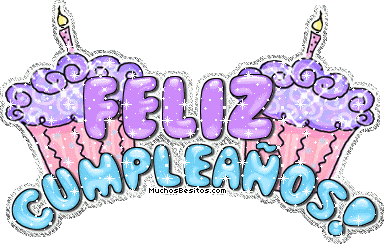Check out this article on reading to your child multilingually. This can seem like a daunting task when you yourself don't speak the language fluently, but remember the mere act of cuddling on a sofa, opening up a book and having book fun with your child will do wonders.
I like to suggest getting bilingual books so that you can read the book several times in English first. Then, at another time like your Spanish Time! you can read the book in Spanish. If you're not comfortable reading the book word for word in Spanish, do a "picture walk." Name things in the book or point out the actions (eg. What is he doing? Running. Corriendo.)
Reading, for very good reasons, is near the top of every parent's list of educational goals and concerns for their young children. Parents know that encouraging their children to read and fostering a love for reading is fundamental to future enjoyment and success in school and extra-curricular learning.
Reading and books are so important and so powerful that the presence of many books in the home is statistically a better indicator of future academic success than parental occupation, education or wealth. According to one Princeton University study, 'scholarly culture, as indicated by home library size, in the family home gives children a significant, and generally substantial, edge in academic performance… Having a large home library is important on its own.'
So wouldn't it make sense to incorporate reading as an important part of learning a second language? The same benefits which children get from learning to read in their first language are just as available—and just as important—in a second language.
The good news is that parents can do a lot to help their children claim these benefits in a second language. And they can do so by following many of the same strategies and much of the same advice that works so well for learning to read in the first language. (Read more)
Monday, June 23, 2008
Thursday, June 19, 2008
¡Feliz cumpleaños - Happy Birthday Janai and Jessica!

My twins, mis gemelas, turned 4 years old today.
And this September they'll be starting pre-K. When the school secretary said that they will be in two different classes, I protested a little. I asked if that's a school policy or what. She said the school usually separates twins because they're individuals. I told her that I really want them to be together at least for pre-k and especially since the program is only for 2 1/2 hours. She spoke with the principal and was able to get them in the same class.
What do you think? Should I persist with them staying together in kindergarten as well? I would rather they stay together for convenience: so they'll have the same class assignments, deadlines, trip schedules, etc. But at the same time, I see no problem with them being in separate classes either. Right now they sleep in the same room with their older sister, but boy do they feed off of each other at night. My husband always says that they each need their own rooms.
What do you think? Do you have twins? How did you handle your twins and their class placements?
Gracias por tu ayuda.
Sunday, June 15, 2008
¡Feliz día de los padres - Happy Fathers' Day!

Hola James,
You are a wonderful father to Jaida, Janai, Jessica and Jaden, gracias. And thank you for being such a supportive and active participant on our Spanish-English bilingual journey.
I smiled at something you were doing today. Janai brought you a book to read to her. It was a bilingual book. You read it in English and did your best to read it in Spanish too. You looked for some confirmation from me, but you kept on reading. That 8-paged book must have seemed like you were reading a long novel to her, but you kept at it. And what tickled me the most was when she said, "Read it again!"
Abrazos y besos
Hope you enjoyed your day.
Jessica
Wednesday, June 11, 2008
Language Learning and Learning to Read
Does Bilingualism Help Children Learn to Read?
Learning and using another language have been linked to all kinds of benefits for children and adults. This is particularly true for young children's expanding cognitive abilities. According to Dr. Laura-Ann Petitto of Dartmouth College, children who have been exposed early to a second language possess an overall 'cognitive edge.' Numerous studies have also linked language education to higher scores on many standardized tests. But can knowing another language also help children learn to read?" (Read more)
Wednesday, June 4, 2008
Conversational Spanish in Action
My eldest daughter and I were shopping for summer shoes, when she attempted to make friends with another little girl there. My daughter said "hello" twice to the girl, but the girl didn't really respond. Then Jaida said, "Hola" and the girl looked up.
I asked Jaida what else could she say to the girl and she said "¿Cómo estas?" The other girl was shy to speak much but her mother was trying to encourage her to respond. Then Jaida asked, "¿Cómo te llamas?" The girl said her name, Jaida then said hers.
After leaving the area, I asked Jaida how did she know the girl spoke Spanish and she said, "Because she didn't answer me after I said hello two times in English."
I asked Jaida what else could she say to the girl and she said "¿Cómo estas?" The other girl was shy to speak much but her mother was trying to encourage her to respond. Then Jaida asked, "¿Cómo te llamas?" The girl said her name, Jaida then said hers.
After leaving the area, I asked Jaida how did she know the girl spoke Spanish and she said, "Because she didn't answer me after I said hello two times in English."
Jaida, te quiero. Soy tan orgullosa de ti.
I still have the hardest time striking up a conversation in Spanish with others. Seeing my daughter in action reminded me that fear and insecurity only holds us back.
So I encourage all of us who want to improve our Spanish-speaking skills:
1. On an index card write down 3-5 sentences that you could say to someone in Spanish.
2. Practice saying those sentences in Spanish.
3. Write down responses and follow-ups to those Spanish sentences.
4. Make a goal: ie. I'm going to practice these sentences on a Spanish-speaking person one time this week.
¡Qué le vaya bien - May everything go well for you!
Jessica
So I encourage all of us who want to improve our Spanish-speaking skills:
1. On an index card write down 3-5 sentences that you could say to someone in Spanish.
2. Practice saying those sentences in Spanish.
3. Write down responses and follow-ups to those Spanish sentences.
4. Make a goal: ie. I'm going to practice these sentences on a Spanish-speaking person one time this week.
¡Qué le vaya bien - May everything go well for you!
Jessica
Subscribe to:
Posts (Atom)



